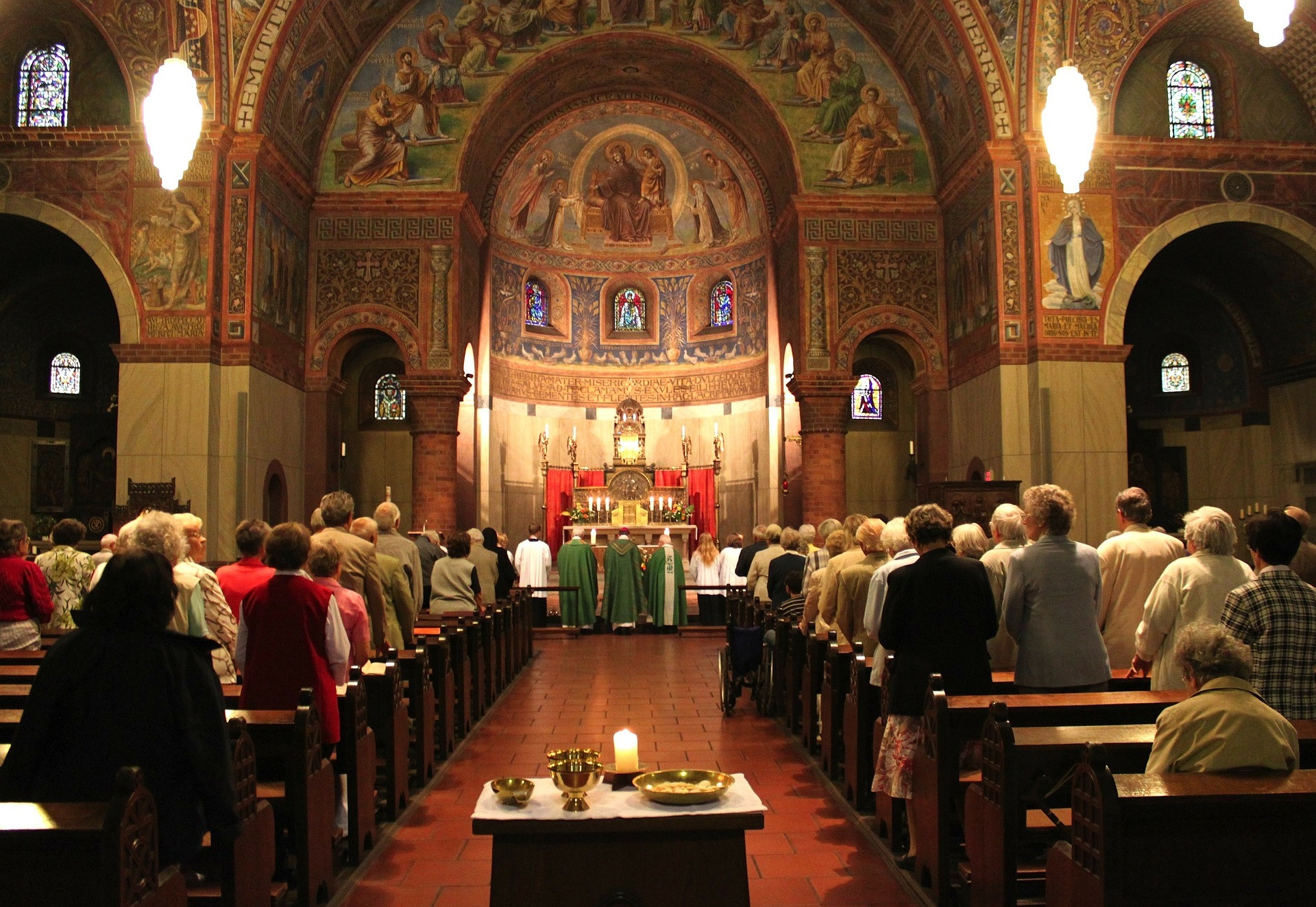Me: I’ve known you for all these years and I must commend you for the dedication, commitment, and passion you have for serving God. However, I cannot help but asking, why do you go to church on Sundays?
Friend: I’m simply following what the Bible says we should do (with a warm smile).
Me: Please help me out here, where in the Bible does it say we should go to church on a Sunday?
Friend. It’s all over the New Testament, even in the last book – Revelation. Of course, Christ resurrected on a Sunday, and what more appropriate day to worship him.
Me: Even if Christ’s resurrection was on a Sunday, does the scriptures give any authority for that change from Saturday to Sunday?
Friend: Maybe not, but how can one argue around such a meaningful change. What do you mean if…you don’t believe He rose on Sunday morning?
Me: If you accept the Bible as the final authority, then there is a problem because the scriptures give no command for such a significant change. One of the biggest problems with the Sunday resurrection is the only sign Jesus gave to the Pharisees that he was the Messiah.
Friend: What sign?
Me. He would be in the tomb for three days and three nights.
Friend: So?
Me: It is mathematically impossible to get three days and three nights from Good Friday to Sunday morning.
Friend: Parts of Friday, Saturday and Sunday are three days. Don’t it?
Me. If that’s your reasoning, however, how do you get the three nights?
Friend: I don’t go to that depth, but as far as I know the scriptures say when the women went to the tomb early Sunday morning, the body was not there.
Me: Yes, but that does not mean it happened Sunday morning. It could have happened the day before.
Friend: Well, yes. The scriptures said the body was not there on Sunday morning though.
Me: That proves nothing about the time of the resurrection. If you know the time of the crucifixion, you can know the time of the resurrection. We know the crucifixion was on the Preparation Day, the day before the Sabbath, but which Sabbath?
Friend: What do you mean which Sabbath?
Me. Here’s a clue. John 19:31 talks about a “High Day” Sabbath. Do you know which Sabbath it is talking about?
Friend: There’s only one Sabbath, Saturday.
Me: No, sir. There are weekly and annual Sabbaths and you will find them in Lev. 23. They are called God’s festivals or annual Sabbaths; they come once a year and during the week of crucifixion, there were two Sabbaths. The First Day of Unleavened Bread and the weekly Sabbath. Christ was crucified the day before the annual Sabbath,
Me: Which day of the week was that?
Friend. In this case, it would have been a Wednesday, that year. If you count three days and three nights that week, Christ rose on Saturday afternoon. It was a Sabbath resurrection, not Sunday. We have a booklet Three Days and Three Nights, I’m going to recommend you read. Also, God’s Seasonal Plan, which is about the annual Sabbaths.
Friend: Never heard this before and I find this interesting. Now, how do you explain Acts 20:7, as it shows the great Apostle Paul attending a Sunday service? Not only that, the first Sunday service was on the Day of Pentecost in Acts 2. The proof is all there with just those two scriptures, my friend. The first Sunday service was held on the birthday of the church.
Me: Hmm. Before I discuss those scriptures. Again, on whose authority was the day changed from Saturday to Sunday?
Friend: Well, the apostles started it and the church fathers followed.
Me. That doesn’t make it right! Did Jesus Christ ever attended a Sunday church service?
Friend: Er, I don’t know.
Me. Jesus was on earth for forty days after His resurrection and He never attended a Sunday service. The very last verse of Luke tells us His followers worshipped in the temple using the teachings Jesus taught them. Jesus never taught them about Sunday worship, and you’ll agree, that would have been the perfect time to announce a change from Saturday to Sunday, if there was going to be a change. The Pentecost you mentioned came ten days after the ascension (50th day after Passover, not Easter as one preacher said recently as Easter did not start until the Second Century), so within ten days Jesus’ followers decided at Pentecost they would change the day by themselves? After all there was no command from God to do it. Can you truly say Pentecost was the first Sunday service?
Friend: Well that was what my pastor taught me.
Me: Have you proven it for yourself?
Friend: No.
Me: By the way, do you know what is Pentecost?
Friend: Yes. The Pentecostal Church started on the Day of Pentecost when they all spoke in tongues, right?
Me. Wrong! FYI, it started in April 1906 with what became known as the Asuza Street Revival in Los Angeles, not the Day of Pentecost. The Day of Pentecost, originally known as the Feast of Firstfruits, one of God’s seven annual Sabbaths of Lev. 23, I mentioned earlier, that commanded to be kept.
Friend: Annual Sabbaths? Tell me a little more about them?
Me: That’s for another topic. I’m going to send you the booklet I mentioned earlier God’s Seasonal Plan and The Day of Pentecost, which will explain more about these days. I don’t want to get off the Saturday-Sunday subject, but the followers of Jesus Christ was gathered on the Day of Pentecost to observe the annual Sabbath rather than a Sunday service. Pentecost always falls on a Sunday. Jesus observed these Sabbaths, and knew His followers would, too, so He told them to wait or tarry (not like a tarry meeting) at Jerusalem to receive the power of the Holy Spirit.
Friend: Ahhh. Hmm. Interesting.
Me. Do you agree then, Pentecost was no first Sunday service?
Friend. You are onto something, I will be looking at this closer. However, Acts 20:7 says clearly Paul had a Sunday church service and communion.
Me. First of all, it does not say Sunday. It says the first day of the week. Secondly, study those verses carefully and you’ll see it was a Saturday night meeting after the Sabbath. It was not on a Sunday.
Friend: Isn’t the first day of the week Sunday and the seventh, Saturday, the Sabbath, as you have been arguing.
Me: Indeed, Sunday is the first day of the week, but in this context the text is not talking about Sunday.
Friend: What! What are you getting into now? (wide-eyed).
Me: I have homework for you. Every time the phrase, “first day of the week,’ is mentioned in the N.T., notice the word “day” is always in italics.
Friend: Meaning?
Me. It was added by the translators and not in the original manuscript. The literal translation should be, “first of the Sabbaths.” The Companion Bible by E.W. Bullinger, in its commentary on the phrase “first day of the week,” says: “the first day of the week –the first of the Sabbaths i.e. the first day of reckoning the seven Sabbaths to Pentecost.”
Friend: (Alarmed) What! What is that?
Me: Unless you understand and keep the annual Sabbaths you wouldn’t be confused. The weeks between Passover and Pentecost are usually referred to as the Feast of Weeks. In every chapter, the term “first day of the week,” is used in the N.T., Pentecost or the Days of Unleavened Bread is always mentioned, which shows the phrase is reference to an annual occurrence, not a weekly event as taught by Christendom. This is huge but again, that’s for another subject.
Friend: (sweating). I do have some studying to do. I guess you have arguments, too, about 1 Cor. 16:2 being a Sunday service.
Me: Certainly. One of the weakest arguments to support Sunday worship. Do some more homework and you’ll see Paul was telling the brethren he would be coming by to collect gifts for the poor ones in Macedonia, so when he came by on a Sunday, not to have a service, but to collect the gifts, they would be ready. That’s why he told them to store them before, “so there will be no gatherings when I come.” Sorry, no Sunday plate to collect offering was going to go around as some churches do erroneously. Again, notice he was going to wait at Jerusalem until Pentecost, so the phrase First day of the week in verse 1 is in reference to Pentecost.
Friend: Hmm. Rev, 1:10. Wasn’t John in the Spirit on the LORD’s Day – Sunday?
Me: That scripture’s interpretation is like a drowning man clutching at straws.
Friend: Really? How?
Me: First of all, the concept of LORD’s Day did not come until around early Fourth Century, so how could John writing in 95 A.D. be referring to Sunday as the LORD’s Day? It doesn’t make much sense. Lord’s Day was used in reference to Mithra’s day of worship SUN-DAY. Mithra was Lord of the Sun and SUN-DAY was the day he was Lord over. Christianity borrowed that term to reach out to get pagan converts to the church. You read the Book of Revelation and it’s all about the DAY OF THE LORD or the LORD’S DAY – the day He’s returning. It’s all there, John heard the great voice like that of a trumpet. It’s a trumpet that will signal the return of Jesus Christ, so Lord’s day has nothing to do with a day of the week, it simply means the DAY OF THE LORD – the day Jesus returns and what Revelation is telling us.
Friend: I’m dumbfounded, speechless. What can I say more than I have to take up my Bible to prove what I’ve been told all these years – Sabbath done away, the law done away, Sunday is the true day of worship.
Me. It’s good you have an open mind as many don’t. I will leave you with more food for thought. If the Sabbath is done away with how come all nations will have to worship Jesus Christ every Sabbath when His kingdom is established on the earth. I’m going to get you the booklet, Who Changed the Sabbath to Sunday?
Friend: The Bible says that? No going to heaven? I look forward to reading that booklet.
Me: Yes, the Bible says that. No going to heaven. Friend: Which scripture says that about the Sabbath?
Me: Isaiah 66:23. Read Hebrews 4:9 and get a margin bible to see what the word translated “rest” means.
Friend: Can’t you tell me before?
Me: Sure, but I want you to read it for yourself. It says “There remains, therefore, the keeping of a Sabbath for the people of God.”
Friend: And that’s New Testament, right?
Me: Yes, it’s Hebrews 4:9.
Friend: Phew! (by now, dots of sweat appeared on his forehead). God bless you.







Share This Article
Choose Your Platform: Facebook Twitter Linkedin